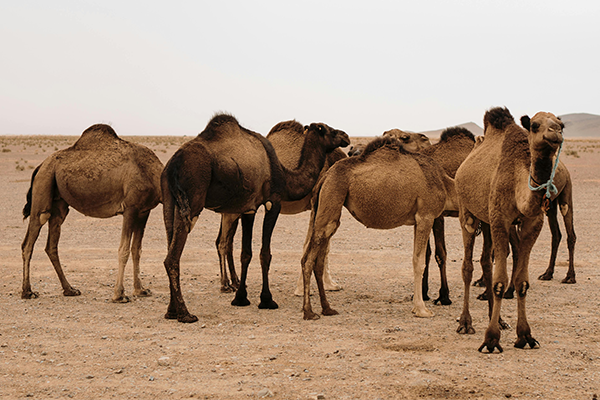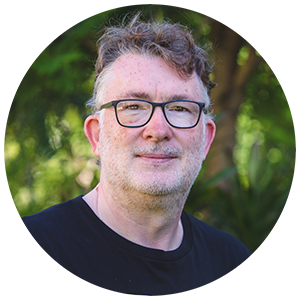I don’t know about you, but I’ve always struggled with the belief that financial blessing and physical wellbeing are always God’s will, or what’s commonly known as the prosperity gospel. The idea is that if you have faith, think positively, and give generously to religious causes (that is, ‘sow a seed of faith’), God will bless you with material and financial success.
The problem is, it’s hard to find a case for this in Scripture.
In the Old Testament, God strongly identifies with the poor, the widow, the orphan, and the stranger, more so than the rich (Deuteronomy 10:17-19). In the New Testament, God goes the whole way and becomes poor. Jesus was born in a feeding trough. All his parents could afford for the temple was two pigeons, a sacrifice traditionally given by the poor. As a wanderer, he said, ‘foxes have holes and birds have nests, but the Son of Man has nowhere to lay his head’ (Luke 9:58). While dying on the cross, soldiers gambled for his clothing, and once dead, Jesus was buried in a borrowed grave. God not only identifies with the poor, God becomes poor.
Camels, Needles and Wealth
Jesus didn’t shy away from talking about wealth. He said, ‘it’s easier for a camel to go through the eye of a needle than for someone who is rich to enter the kingdom of God’ (Mark 10:25). Camels and needles are hard to get our heads around, let alone through. Let’s look at the part of Scripture that comes before Jesus’ statement. Read Mark 10:17-22 NRSV.

The man’s approach to Jesus is respectful, both in action (he knelt before him) and in words (he addresses Jesus as ‘Good Teacher’). He obviously wanted something, but Jesus didn’t return his compliment. Perhaps he saw through the man, or maybe it was his use of the word ‘inherit.’ As a wealthy man accustomed to inheriting possessions, it appears he assumed eternal life could be inherited too. In response, Jesus named the six ethical commandments but with one noticeable difference; he swapped out the original word ‘covet’, with ‘defraud’. You shall not defraud your neighbour (Leviticus 19:13a)’.
Jesus seems more interested in how this man achieved his wealth than his pious claims. The word ‘inherit’ in Greek is the same word for ‘parcel or plot of land’, and this man had many possessions (verse 22). Back then, the primary way of acquiring land was through debt-default, which is when small agricultural landowners lose their land after struggling to pay their debts. This system favoured the rich and powerful who would swoop in and accumulate land without any thought for the destitute families they defrauded. It was time for this man to hear a ‘hard truth, said in love (verse 21).’ ‘You lack one thing’ go, sell what you own, and give the money to the poor, and you will have treasure in heaven; then come, follow me.’
Poverty and Justice
This passage shows us that in God’s economy, it’s the man who is in debt to the poor he has defrauded, not the other way around. But Jesus was not simply inviting the man to change his attitude towards wealth. If only it were that simple. He couldn’t just treat his servants better and throw more money in the temple offering. It wasn’t about selling his home for a more modest abode. Discipleship, the ‘come follow me’ part, meant repaying his debt to the poor. It meant the economic restoration of others. The kind of repentance Jesus calls us all to is far more than a ‘forgive me for my sin.’ It requires a move towards the jubilee practice of redistributive justice.
What’s interesting is the man’s response: ‘When he heard this, he was shocked and went away grieving, for he had many possessions. Going out on a limb here; I imagine that many of us might respond in the same way.
I guess it would be easy to say, ‘but I haven’t defrauded anyone, so it doesn’t apply to me.’ But the real question is: do the current economic systems help me acquire wealth at the expense of others? In a world of prosperity, we don’t often think about the privilege we were born into. Here’s some facts from the World Economic Forum:
- The wealthiest 10% of the population take home 52% of all income, while the poorest earn just 8%.
- A worker from the top 10% of earners will earn $122,100 per year on average, while a worker from the bottom half of earners will only earn $3,920 per year.
- The lower-earning half of the population own only 2% of all global wealth (measured in valuable assets and items), while the top 10% own 76%.
Life in the Kingdom of God
After the rich man departs from Jesus, the story in the gospel of Mark continues. Read Mark 10:23-27 NRSV.
It does sound impossible, doesn’t it? As impossible as a large animal squeezing through a tiny space. It means exactly what it says, a bit like saying, ‘It’s easier for Elon Musk (from a wealth point of view) to go through an ATM deposit slot, than for someone who is rich to enter the kingdom of God.’ This smashes any thought that wealth is a sign of God’s favour, and begs the question, ‘who then can be saved?’ If you’re feeling nervous, Jesus offers a degree of hope, ‘for God all things are possible’ (verse 27). Phew!
Despite what it feels like, Jesus isn’t having a crack at the rich here. It’s more about his vision for the kingdom of God, a vision for a new social order based on economic equality where there is no rich or poor. In this kingdom, the rich can’t enter with their wealth intact. Jesus’ invitation to follow him goes beyond salvation to an active participation in bringing about the kingdom of God. That’s why at Baptist World Aid, we work towards ‘A Better World For All’. As partners with God, we’re living for the kind of world God is reconciling to himself. What a privilege we have, to participate in the kingdom of God in the here and now!
A New Way of Living
The story continues with the disciple Peter’s response: ‘Peter began to say to him, ‘Look, we have left everything and followed you.’ Jesus said, “Truly I tell you, there is no one who has left house or brothers or sisters or mother or father or children or fields, for my sake and for the sake of the good news, who will not receive a hundredfold now in this age—houses, brothers and sisters, mothers and children, and fields, with persecutions—and in the age to come eternal life. But many who are first will be last, and the last will be first.”’
Peter seems to understand. The disciples have done what the rich man could not: they have left everything and followed Jesus (verse 28). When wealth is reallocated, there is a surplus for all to enjoy—yes, even a hundredfold. This Kingdom, full of radical generosity, leads to the formally rich and the formally poor sitting around the dinner table together. Prosperity for a few and poverty for many comes to end in the community of God. Jesus has answered the rich man’s question and more. It’s not just about a future destination, but a new way of living in the here and the now. We are to be a community that reflects the very nature and character of God understanding many who are first will be last, and the last will be first (verse 31).
What do we have to do to receive eternal life (salvation) is a big question for us all, not just the rich man. The question however, filtered through a conversation with Jesus, becomes an invitation to participate in the kingdom of God. Our struggle is finding the courage to participate when it means changing the way we live, understanding the choices we make give the choice of freedom to others as they emerge from poverty. The rich man couldn’t see a way through. Perhaps a fresh glimpse of the Kingdom, and the fact that all things are possible for God, will help us navigate the eye of the needle.



